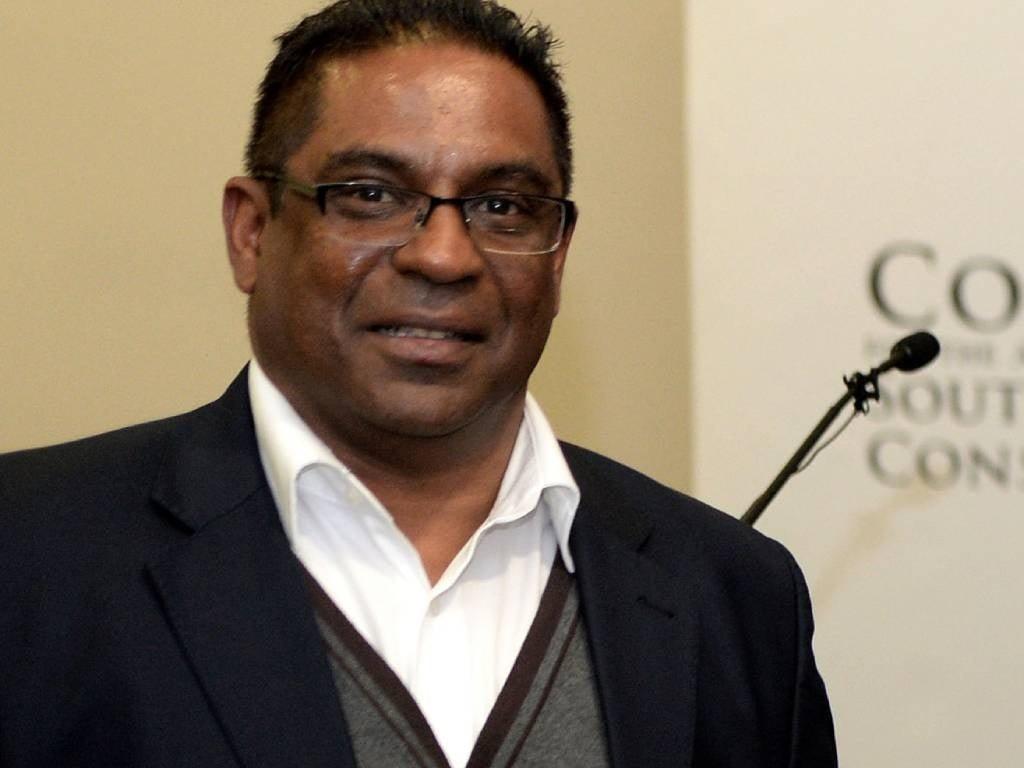Africa-Press – South-Africa. South Africa needs an electoral system that is fit for purpose, says Lawson Naidoo who was part of a panel discussion about governance and the electoral system.
Naidoo, the executive director of the Council for the Advancement of the SA Constitution (Casac), spoke on the third day of the national conference on the Constitution in Midrand, Gauteng, on Friday.
“The question we need to really focus on today is that we need an electoral system that is fit for purpose for South Africa in 2023 and for the next 50 to 100 years,” he said.
According to Naidoo, society rarely got the chance to change an electoral system so South Africa now had an opportunity to change it following the 2020 judgment of the Constitutional Court.
In its 11 June 2020 ruling, the apex court declared the Electoral Act unconstitutional “to the extent that it requires that adult citizens may be elected to the National Assembly and provincial legislatures only through their membership of political parties”.
Naidoo said the Zondo Commission, which Chief Justice Raymond Zondo chaired, had highlighted a “huge problem” in South Africa.
“We have a fundamental accountability deficit; Members of Parliament, members of the provincial legislature, perhaps even our councillors are disconnected from our people.
He added:
These protests happen because people have no other recourse to get to their councillors or even MPLs. Instead, they express their democratic right to protest.
“… and it, therefore, says to us, the electoral system is fundamentally flawed and not able to deliver on it,” Naidoo said, adding there have been several recommendations over the years that the electoral system needed to change.
But these were also, until recently, ignored, he added.
‘Narrow’ judgment
Turning to the Constitutional Court judgment, which declared the Electoral Act unconstitutional, Naidoo said the case was framed in a narrow way.
The Constitutional Court suspended the declaration of unconstitutionality for “24 months to afford Parliament an opportunity to remedy the defect giving rise to the unconstitutionality”.
This means the initial deadline to pass the legislation was 10 June 2022.
News24 reported Parliament initially deferred working on the amendment to the Department of Home Affairs, and the bill was only introduced to Parliament in January 2022.
The Constitutional Court extended the deadline for the bill’s enactment to 10 December after Parliament approached the apex court for a deadline extension.
At the conference, Naidoo said: “It is very narrow judgment, and the Electoral Act was declared unconstitutional only to that extent, not the whole act was declared unconstitutional.”
He added although the judgment was “narrow”, Parliament had an opportunity to broaden it. Still, it has so far failed to do that.
Naidoo said the choice of an electoral system was ultimately a political decision, not a judicial one, and the courts could not and should not determine or dictate the kind of electoral system the country should have.
“It’s part of the fundamental rights that we derive from the Constitution. As the electorate, the voters, as the citizens of South Africa, we have the right to determine that electoral system.”
He added Parliament must ensure it engaged with citizens in framing the electoral system, which it had failed to do.
“Although the judgment of the Electoral Act was narrow, Parliament had an opportunity to broaden this … but Parliament failed to do that. They simply took what government said and processed it in a way that they hoped will pass constitutional muster.”
Not all ‘doom and gloom’
The facilitator of the panel, Mandisa Mashego, said if the electoral system had delivered the “opposite of prosperity” for the majority, then “defending old views” would not take the country anywhere.
“The system that we have, which has been declared unconstitutional, exists in third world countries, which means there is a very big relationship between corruption, financial maladministration, lack of financial governance, lack of accountability, and lack of accountability to taxpayers,” she added.
Mashego said there was a “big” relationship between what South Africans were experiencing regarding their lived reality, their material conditions and the electoral system adopted in 1993.
Mashego added:
Professor Mandla Mchunu spoke about the electoral system’s highs and lows and asked those in attendance what kind of democracy they wanted to see.
Mchunu served as first deputy secretary of the Adjudication Secretariat during South Africa’s first democratic elections in 1994.
He referred to Section 41 (1) of the Constitution, which describes the nature of the state that would be fit to govern the country.
Mchunu said the section stated all spheres of government should preserve peace and nationality and also serve the wellbeing of the Republic.
He added it was not all “doom and gloom” regarding electoral democracy, saying there have been many achievements, including six free and fair elections.
For More News And Analysis About South-Africa Follow Africa-Press






